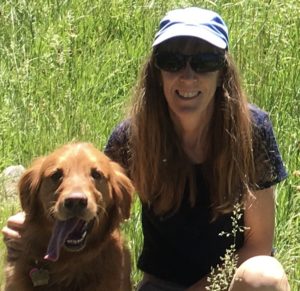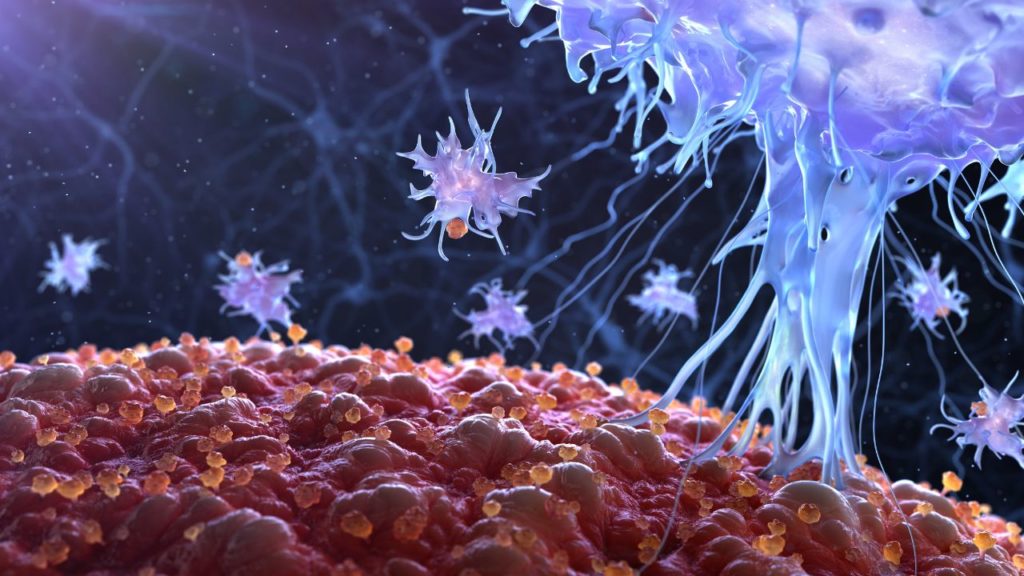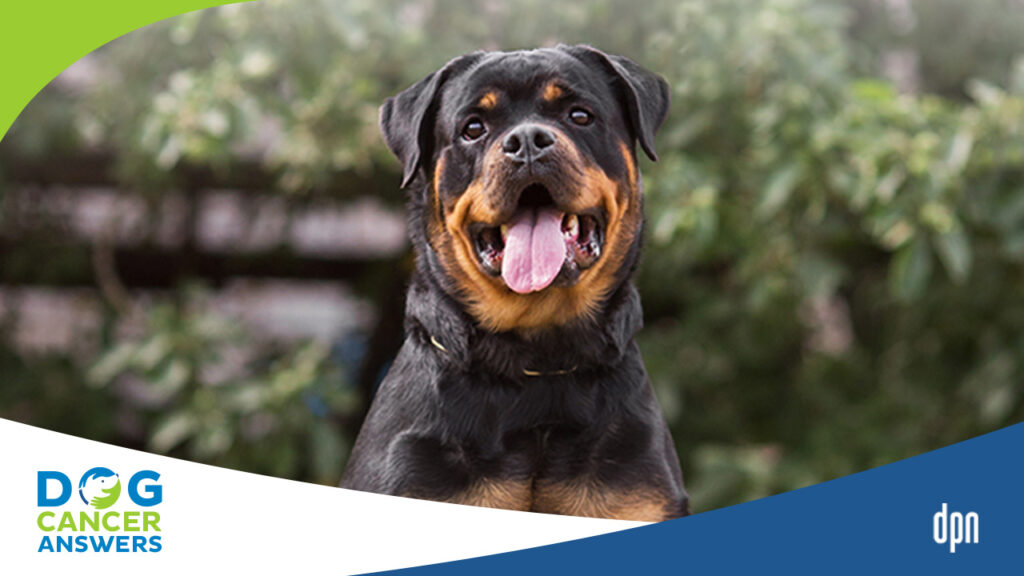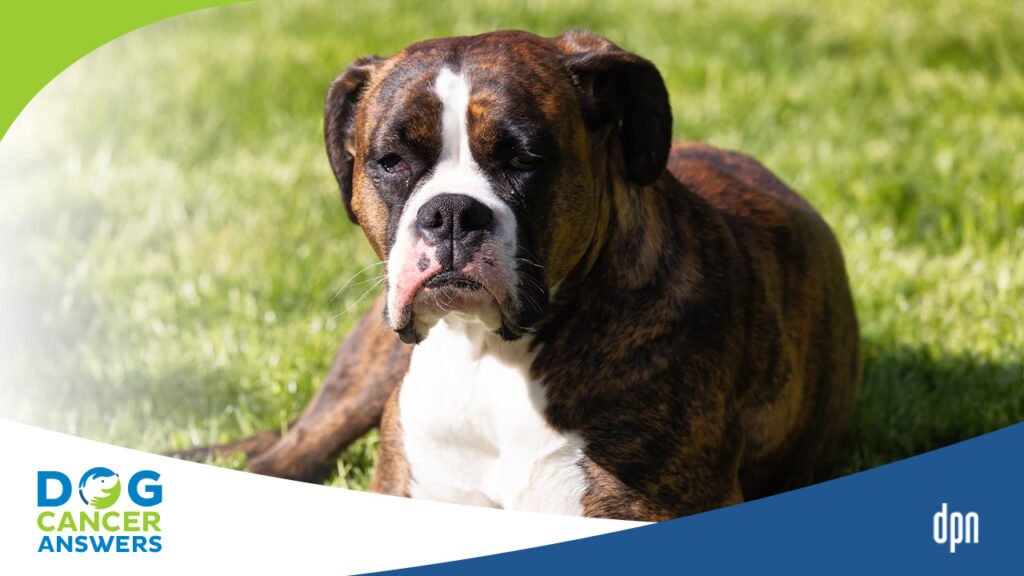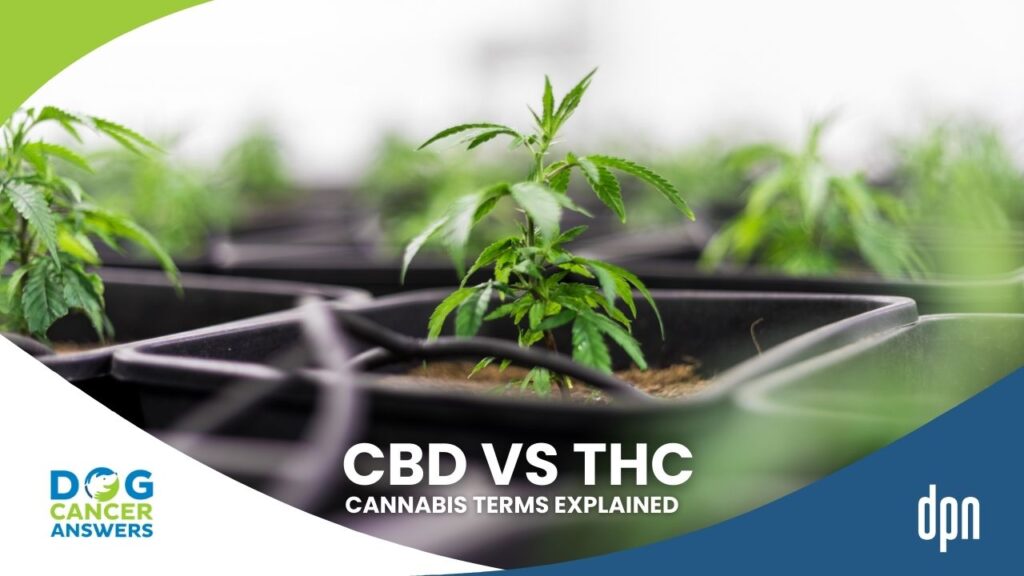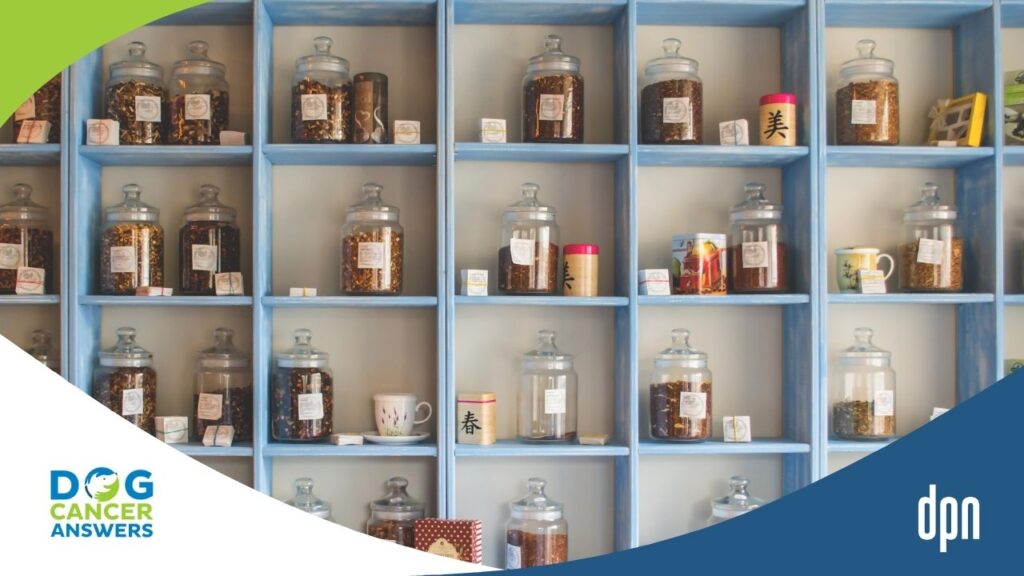[00:00:00] >> James Jacobson: Today’s sponsor is The Dog Cancer Survival Guide, a must read book if your dog has cancer. To get a free excerpt on what to feed your dog, go to DogCancerDiet.com. You’ll get Dr. Demian Dressler’s Dog Cancer Diet and help your dog with their next meal. That’s DogCancerDiet.com to get an excerpt for free of The Dog Cancer Survival Guide.
[00:00:29] >> Dr. Nancy Reese: Well, turns out that there’s a lot of, I mean that the list of, for lack of a better word, ingredients, in colostrum … There’s a whole bunch of things that are in there and they aren’t just the immunity agents the newborn needs.
[00:00:44] >> Announcer: Welcome to Dog Cancer Answers where we help you help your dog with cancer. Here’s your host, James Jacobson.
[00:00:53] >> James Jacobson: Hello friend, and thank you for joining us today. Today, we are taking a call from a listener, Debra, about whether her dog with hemangiosarcoma is benefiting from the colostrum supplement that she’s been giving her. To answer that we are turning to our Chief Medical Editor, Dr. Nancy Reese, who has been a practicing veterinarian for three decades.
She also has a Master’s in Preventative Veterinary Medicine and a PhD in Epidemiology. Dr. Nancy Reese, thank you so much for being with us on Dog Cancer Answers.
[00:01:30] >> Dr. Nancy Reese: It’s nice to be back again.
[00:01:31] >> James Jacobson: We are going to go to our listener mailbag or voicemail bag and take a listener question from Debra, who’s calling in, who has a dog with hemangiosarcoma.
[00:01:44] >> Debra: Hello, my name is Debra, and I’m wondering if colostrum would help my dog, who has hemangiosarcoma. I talked to of that, and they told me that it’s unlikely to be operable, the tumor on his heart. I’ve given him the, yunnan baiyao. And I am grateful that that was on the video. I gave him colostrum and he totally perked up. So I’m just wondering how much I should give him. Thank you.
[00:02:13] >> James Jacobson: So, Dr. Nancy, what advice do you have, for Debra.
[00:02:17] >> Dr. Nancy Reese: First thing is always with, really any of these calls, I’m always sad to hear that yet another dog has something like hemangiosarcoma, cause that is, it’s just a really bad one to hear about.
And being inoperable always makes the choices so much more difficult because you feel like you want to be doing something. And inoperable tumors don’t have a lot of options. I like that she’s got the yunnan baiyao. I think that’s a great thing. It really seems to make the dogs feel better and decrease the bleeding and that type of thing.
[00:02:49] >> James Jacobson: And what about the colostrum? Yeah.
[00:02:50] >> Dr. Nancy Reese: Yeah. That’s a very interesting substance. I mean, honestly, the first time, years ago when I heard people were using colostrum, I thought, oh, here it goes in the famous words, another snake oil type of thing, because what we were taught way back when is that colostrum is only beneficial in the first several hours of life. An animal, or presumably a human’s, intestinal tract, it’s slightly different. And colostrum has a bunch of agents that are only absorbed intact through a newborn’s gut. And that’s why it’s so important for them to get colostrum early, because later on parts of the gut don’t allow the absorption of those particular agents. And so it’s not effective later on.
So my image was always, why would we give something that a human or animal can’t absorb. Well, turns out that there’s a lot of, I mean, the list of, for lack of a better word, ingredients, in colostrum … There’s a whole bunch of things that are in there and they aren’t just the immunity agents, the newborn needs.
[00:03:58] >> James Jacobson: What’s in there?
[00:04:00] >> Dr. Nancy Reese: Oh, there’s things like, um, lactoferrin and lactoalbumin, and growth factors. Then there’s also some antibodies and things like that. So there’s a lot of other agents besides just giving immunity benefits to a newborn. And absolutely, just like any other, quote, medication or substance we eat, and we eat all sorts of things, and those are absorbed in our system.
So the agents that are in colostrum can certainly be absorbed in some form into an older animal. One of the big benefits of using colostrum would be for certain gastrointestinal diseases, because in those cases, the antibodies and things like that can actually locally affect the GI tract. So there’s really good rationale for using it in intestinal disorders or overgrowth of bacteria and things like that, or certain viruses. But some of those agents in there, I think particularly the lactoferrin and the lacto albumin, have been studied to, like so many other things, affect the immune system and possibly have some anti-cancer effects. So I don’t know that specifically it would have any effect on hemangiosarcoma cells, but because of the growth factors and other things, they use it in athletes to try to give them more energy.
So the fact that she noticed the dog perking up with the colostrum and there’s really no reason the dog couldn’t have the colostrum … I think absolutely, if it gives the dog more energy, then it’s a useful thing.
[00:05:32] >> James Jacobson: So the question is, how much do you give your dog?
[00:05:36] >> Dr. Nancy Reese: So we sound like a broken record on some of these, but, it really is going to depend on the product because there’s, there’s going to be ones that are from different species or different cows or whichever animal they’re using to collect this from. I probably imagine some of these are synthetically made colostrums too. I don’t know that for sure, but it’s gonna so depend on what product you give.
So it’s great, if you can find a holistic vet that has a product that they stand behind. And then you can more likely go off of a label recommendation, but you can probably buy truly snake oil ones out there on the internet. So try to find a trustworthy holistic vet to give you a good brand recommendation.
[00:06:17] >> James Jacobson: Wait, go to a vet, don’t just go to the internet?
[00:06:20] >> Dr. Nancy Reese: You can probably even call for that.
[00:06:23] >> James Jacobson: I got it. Okay. So I am assuming it only comes from cows. Is that not true?
[00:06:29] >> Dr. Nancy Reese: Well, I think I saw a reference to some Buffalo colostrum, so I think you could get it from other other ones.
[00:06:36] >> James Jacobson: Okay. So find out, get a recommendation from someone who uses this, but it may well work or in terms of providing the energy and the pep that that would be helpful
[00:06:48] >> Dr. Nancy Reese: Yeah, energy. And there are some, you know, again, in test tubes, at least, they’ve been able to get some cancer cells to go through apoptosis with the colostrum and things. So again, there’s that hint of anti-cancer effects and there’s really, I cannot think of a reason that you shouldn’t use it.
[00:07:07] >> James Jacobson: Well, there you go, Debra. Thank you so much, Dr. Nancy Reese. I appreciate you being with us again today.
[00:07:12] >> Dr. Nancy Reese: It’s been a pleasure.
[00:07:15] >> James Jacobson: And thank you friends for being there. Don’t forget to check out the show notes for this episode at our website, DogCancerAnswers.com. And depending upon which podcast catcher you have, you can also find the links to our show sponsor, which is The Dog Cancer Survival Guide, our private Facebook Dog Cancer Support Group, and our newsletter Dog Cancer News. Those links are either in the show notes or on our website at DogCancerAnswers.com. Thank you for hitting the play button today. And please remember to subscribe and to follow Dog Cancer Answers in your favorite podcast app so that you can always have the latest episode in your podcast feed.
And if you have a question for one of our veterinary experts, like Debra did today, please call our Listener Line at (808) 868-3200. That number again, (808) 868-3200. Again, thanks for listening, and from all of us here at Dog Podcast Network, I’m James Jacobson, wishing you and your dog a very warm aloha.
[00:08:29] >> Announcer: Thank you for listening to Dog Cancer Answers. If you’d like to connect, please visit our website at DogCancerAnswers.com or call our Listener Line at (808) 868-3200. And here’s a friendly reminder that you probably already know. This podcast is provided for informational and educational purposes only.
It’s not meant to take the place of the advice you receive from your dog’s veterinarian. Only veterinarians who examine your dog can give you veterinary advice or diagnose your dog’s medical condition. Your reliance on the information you hear on this podcast is solely at your own risk. If your dog has a specific health problem, contact your veterinarian.
Also, please keep in mind that veterinary information can change rapidly. Therefore, some information may be out of date. Dog Cancer Answers is a presentation of Maui Media in association with Dog Podcast Network.
